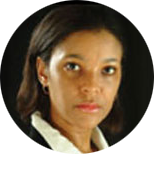
(Hons), BVC, LL.M, P.C.H.E
The Labour Code was passed on 1st August 2012 and has been referred to in many articles to date. The writer is often asked where her inspiration for various topics and titles to her weekly column comes from. The article will hopefully assist those school leavers looking for their first permanent jobs. The inspiration for these articles came from the recent journey to find the writer’s personal assistant.
1. ALWAYS include a covering letter: Avoid using phrases such as “I wish to express my interest in applying for this position by writing this letter…” This sounds amateurish and unprofessional. It conjures up the image of an individual who is clueless about writing a covering letter, and therefore clueless about everything else. It is simply not a good first impression.
2. EDUCATION AND TRAINING: This is the core to your resume. This is where you demonstrate that you have the educational background and skills for the job that you are applying for. Make sure your application stands out by outlining carefully how your skills would work seamlessly in the position that you are applying for.
3. PERSONAL INFORMATION: There is no need to include your date of birth, where you were born, marital status and nationality. These are pieces of information that can be gleamed from the resume and would come out naturally in the interview.
4. WORK EXPERIENCE: Your previous work experience could make you the natural choice for a similar job. Make sure you explain your skills clearly. Longevity at a job can be a positive sign of a candidate who enjoys his or her work and is good at his or her job. A resumé peppered with various jobs over a year or two, can create the impression of someone just working for a pay cheque, and not working towards a particular career path. It also suggests instability. Most employers prefer to hire individuals they feel will still be working in their business after the in-house training has been completed.
5. REFERENCES: Ensure you have asked your referees permission to use them as your references. Be sure that you include contact details, and whether the referee is a personal or work reference. Do not use a friend of yours, for example, your friend in school or college. A referee should be someone who has a good reputation, has not been in trouble with the law, a model citizen. Not someone who owes rent or taxes and has recently been a defendant in court. Choose your referees wisely. They reflect on you personally.
6. TOO LATE? A resumé sent in after the deadline will not be considered. You are wasting your time and theirs (your potential employer’s) by sending it in weeks after the deadline has passed. If you think you may be late sending it by post, be creative and send it by email or call to express an interest in the position. You may be given a reprieve.
7. DON’T FORGET to include hobbies and interests. Not only do they make great ice-breaker questions but you show how well rounded you are. Playing violin or snorkelling as hobbies makes you stand out from the crowd.
8. TOO LONG? TOO SHORT? Ideally a resume should be two or three pages long. This is not a strict rule, the more work experience and education you have the longer your resume will get over time. But for your first or second permanent position, that is the standard length. One page is too short, and it means you have excluded key information.
9. DON’T LIE! This is very important. Do not embellish your resume. If you don’t play golf and you are not fluent in Spanish, do not say so. If you are caught in an interview lying about something you had on your resume, you are highly unlikely to get the position.
10. PERSONAL STATEMENTS: this is a matter of personal choice. Sometimes a personal statement can enhance a resume and sometimes it can diminish it. Hopefully, your resume and covering letter has already covered all your strengths so it isn’t necessary to have one. If you must, keep it short, a sentence or two will suffice.
Think of your resume or CV as your “advertisement”: it covers all the salient and positive points about your academic and professional development to date without any false information. Remember to tailor your resume to the job you are applying for. Sign your covering letter, and proofread to avoid obvious grammatical errors and/or typos. The final product reflects on you, and you want that first impression to be a good one.
Ms. Trudy O. Glasgow is a practising attorney at the law firm Trudy O. Glasgow & Associates, a court-appointed mediator and author in Saint Lucia (and has also taught law at University level in the UK)* Ms. Glasgow is also the current Vice President of the Bar Association of Saint Lucia.
This column is for general use only, for advice specifically for your case, please see your lawyer.
Share your thoughts and comments: you are invited to email me at trudyoglasgow@lawyer.com




![Simón Bolívar - Liberator of the Americas [Photo credit: Venezuelan Embassy]](https://thevoiceslu.com/wp-content/uploads/2025/12/Simon-Bolivar-feat-2-380x250.jpg)



